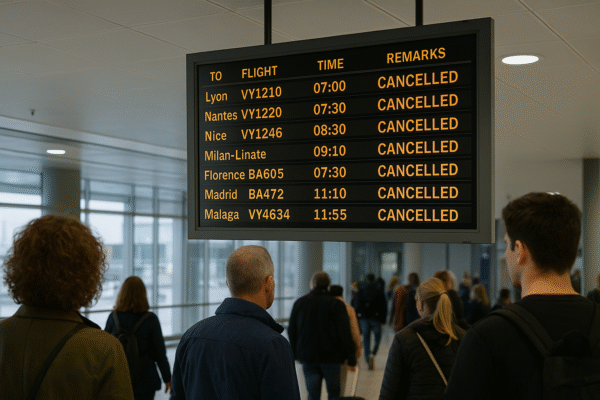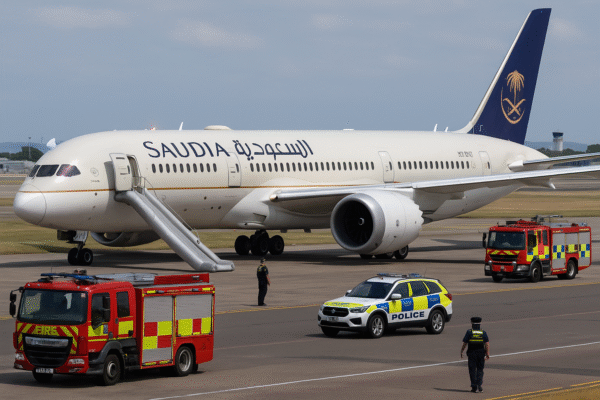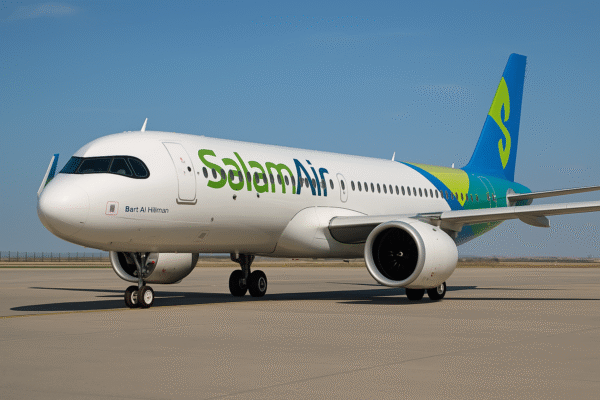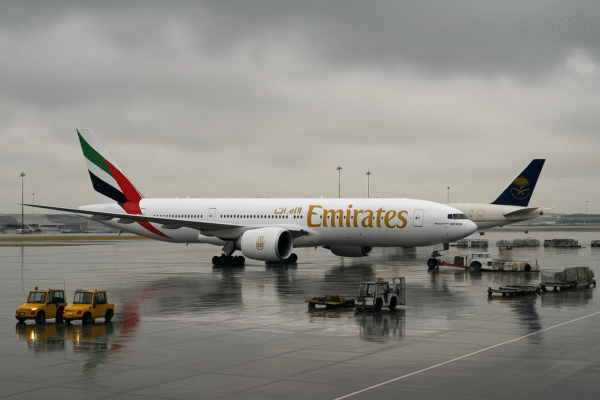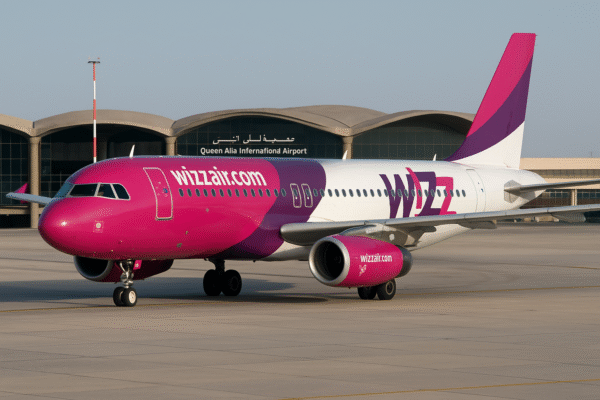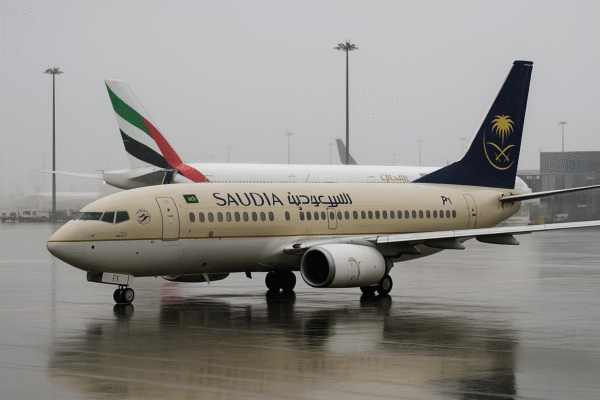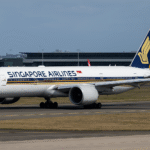Flight Chaos Hits the Middle East
Dubai, UAE / Riyadh, Saudi Arabia – Air travel across the Middle East faced a turbulent weekend as Emirates and Saudia Airlines canceled multiple flights due to a combination of severe weather and operational challenges. The disruptions have left hundreds of travelers stranded or facing significant delays, impacting routes connecting major tourism and business hubs such as Dubai, Riyadh, Jeddah, and Dammam.
As summer weather systems intensified across the Gulf region, both airlines struggled to maintain normal operations. Emirates confirmed two cancellations and eight delays, while Saudia announced three cancellations and seven delays across its busy network, creating frustration and confusion for passengers on both business and leisure trips.
Major Destinations Affected
Dubai
Dubai International Airport (DXB), one of the busiest global aviation hubs, has been severely affected. Tourists heading to the city for attractions like the Burj Khalifa, Dubai Mall, and Palm Jumeirah are experiencing extensive delays. Many visitors have been forced to reschedule tours or extend hotel stays due to last-minute cancellations and overbooked alternative flights.
Riyadh
In Riyadh, the Saudi capital and a crucial hub for business and government travel, the impact has been equally severe. Conferences, corporate meetings, and key governmental events have been disrupted as travelers scramble to find new connections.
Jeddah and Dammam
In Jeddah, a gateway for religious tourism and cultural travel, the disruptions have created challenges for pilgrims and leisure travelers. Dammam, a major city in the Eastern Province, is also struggling with operational backlogs, delaying business travelers and vacationers alike.
Reasons Behind the Disruptions
Harsh Weather Conditions
The primary cause of the flight chaos is the severe weather sweeping across the region. Sandstorms, heavy rains, and extreme heat have made it difficult for airlines to operate safely. Reduced visibility and strong winds have interfered with takeoffs and landings, while excessive heat has strained aircraft systems and ground handling equipment.
Experts note that these weather conditions are becoming increasingly unpredictable due to changing climate patterns, placing additional strain on airlines that are already operating near full capacity during the summer travel season.
Operational Challenges
In addition to weather, operational difficulties have compounded the crisis. Both Emirates and Saudia are managing heavy passenger volumes during peak travel periods, leading to scheduling bottlenecks and limited flexibility to reroute flights.
Key operational challenges include:
- Crew shortages, as airlines adjust rosters during sudden disruptions.
- Maintenance delays, particularly for long-haul aircraft requiring precise coordination across multiple hubs.
- Overbooking, which has worsened the rebooking process for affected passengers.
- High passenger volumes, straining resources at busy airports and delaying ground services.
Broader Context of Air Travel Volatility
This incident highlights a broader trend of instability affecting air travel in the Middle East in recent years. While the current cancellations stem primarily from weather and operational strain, the region has also faced challenges related to airspace restrictions, geopolitical tensions, and surges in post-pandemic travel demand. These factors have collectively increased the vulnerability of regional flight networks to even minor disruptions.
Impact on Tourism and Business Travel
The fallout from these cancellations is being felt across the tourism and business sectors.
- Tourism: Dubai’s vibrant hospitality industry is facing last-minute cancellations and rescheduling headaches. Tour operators report that some tourists are postponing activities such as desert safaris and sightseeing tours due to uncertainty around their departure and arrival times.
- Business Travel: Riyadh and Dubai, both global hubs for conferences and meetings, are witnessing cascading effects as business travelers miss appointments and networking opportunities.
- Religious and Cultural Travel: In Jeddah and Dammam, travelers heading for religious pilgrimages or cultural explorations are struggling with sudden itinerary changes, with some facing multi-day delays.
Travel experts estimate that the disruption could result in millions of dollars in lost revenue across the region, highlighting the economic sensitivity of air travel reliability.
Guidance for Affected Travelers
Passengers impacted by the cancellations and delays are advised to take the following steps:
- Stay Updated: Use airline apps, official websites, or SMS alerts to receive real-time updates on flight status.
- Confirm Rebooking Options: Airlines are offering flexible rebooking or refunds for affected flights, but rebooking early is recommended due to high passenger demand.
- Explore Alternative Routes: For urgent travel, consider connecting flights through secondary airports or alternative carriers.
- Plan for Accommodation: In cases of long layovers or delays, hotels near airports in Dubai, Riyadh, and Jeddah are experiencing high occupancy. Booking early can prevent additional inconvenience.
- Use Travel Insurance: Policies that cover weather-related disruptions can help offset costs associated with rebookings, extended stays, or cancellations.
Airlines’ Efforts to Stabilize Operations
Both Emirates and Saudia have deployed additional staff at key airports to assist passengers and are working to clear backlogs in their networks. Emirates has emphasized its commitment to maintaining customer support, while Saudia has promised to enhance contingency planning to handle future disruptions more effectively.
Despite these efforts, experts warn that travelers should expect continued turbulence in the coming days as weather patterns remain unstable and operational recovery takes time.
Looking Ahead
The recent cancellations are a reminder of the delicate balance airlines must maintain between operational efficiency and passenger safety in a rapidly changing environment. With the Middle East serving as a major global travel hub, enhancing resilience against weather and operational disruptions will be key to minimizing future chaos.
For now, travelers to and from Dubai, Riyadh, Jeddah, Dammam, and other regional hubs are urged to remain flexible and prepared, keeping a close eye on updates from their airlines until full normalcy resumes.
For more travel news like this, keep reading Global Travel Wire





